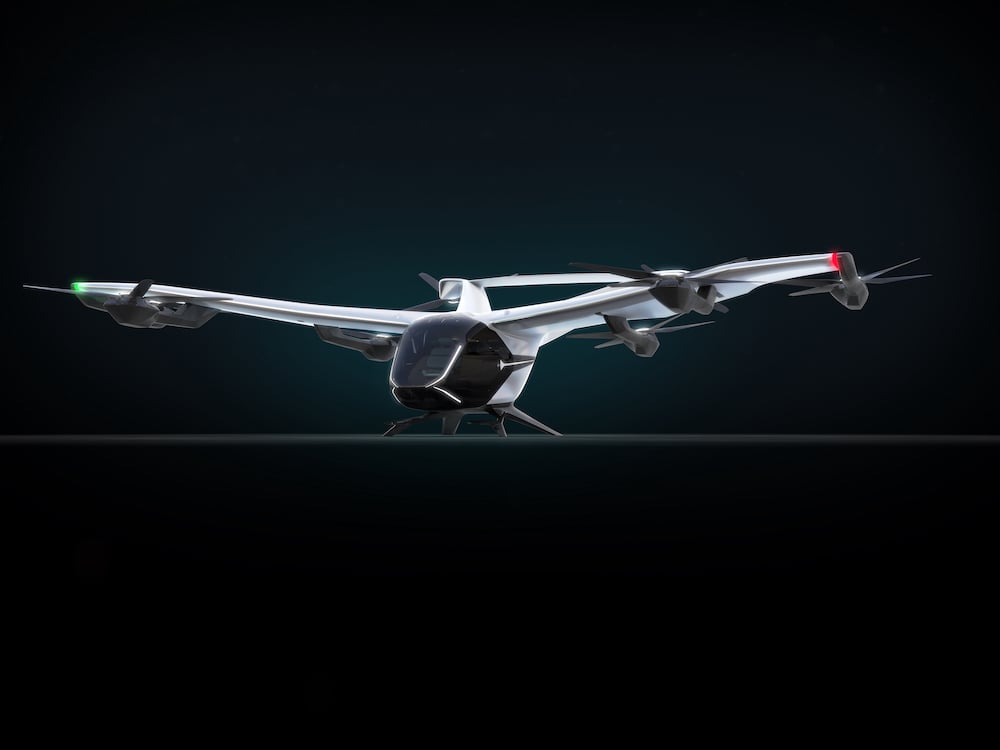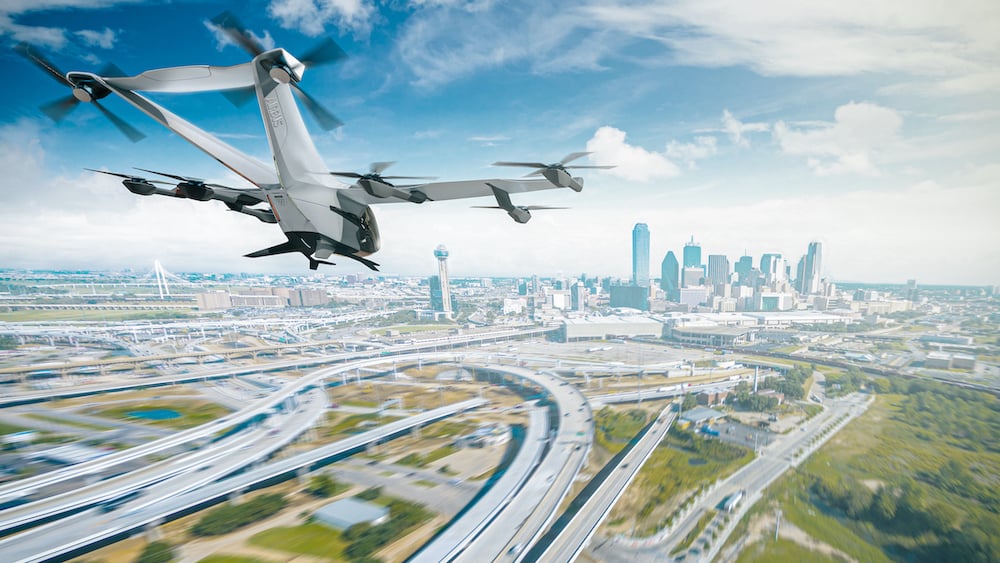Click Here to View This Page on Production Frontend
Click Here to Export Node Content
Click Here to View Printer-Friendly Version (Raw Backend)
Note: front-end display has links to styled print versions.
Content Node ID: 413263
Airbus, now in its seventh year of refining its strategy for the advanced air mobility sector, expects its efforts to bring new products to market to be more visible this year. The European aerospace group is preparing to start taking delivery of parts for its CityAirbus NextGen eVTOL prototype, allowing it to begin assembly of the four-seat vehicle this year ahead of the planned launch of flight testing in 2024.
Meanwhile, the scope of work to develop the ecosystem to support the new all-electric mode of transportation is also growing with more resources being committed to this effort. This year is already seeing the expansion of partnerships with prospective aircraft operators, infrastructure providers, and key policymakers across the spectrum of a diverse set of use cases that Airbus says will include medical services, commuter flights, and ecotourism. Work is underway with new use case initiatives in locations including Estonia, Germany, Italy, Latin America, Japan, and Saudi Arabia.
The CityAirbus NextGen is expected to have a range of 80 kilometers (50 miles) and a 120 km/h cruise speed, with projected noise levels below 70 dBA during takeoff and landing, and 65 dBA in flyover mode. At this week's HeliExpo show Airbus (Booth C2803) is displaying a one-fifth-scale model of the aircraft, having brought a one-10th-scale version to the 2022 event.
Back in 2016, Airbus’s ACubed technology incubator first started work on the Vahana single-seat, fully autonomous eVTOL technology demonstrator, which was to take to the air for the first time in January 2018. By May 2019, it had the larger CityAirbus demonstrator flying, and the lessons learned from these projects proved to be the genesis for the CityAirbus NextGen program launched in September 2021.
“Now we feel we are at the execution stage," Balkiz Sarihan, head of urban air mobility (UAM) at Airbus, told a media briefing this week. "The exploration is done and the ideas matured—now it’s getting really serious. For us, it’s always been about taking one step at a time. We don’t care about being the first or the fastest [to market]."
The first CityAirbus NextGen prototype will be built at the Airbus Helicopters facility at Donauwörth in southern Germany, where the company is establishing a dedicated test center for its eVTOL program. Significantly, though, the Airbus UAM business unit is not part of the group’s rotorcraft division and instead draws on expertise from across the wider company, tapping expertise in fields such as new propulsion technology.
The latest partners to join the program are Eaton and Crouzet, which will respectively provide the electrical power distribution system and the flight deck human-machine interface. These companies join a cast of suppliers that already includes Magicall (electric motors), KLK (rear fuselage structures), Spirit AeroSystems (wings), and Thales and Diehl Aerosystems (joint development of flight control computers).

The rest of the aircraft is being built in-house at Airbus. The Airbus Helicopters facility at Marignane in southern France is providing the flight control system and main fuselage sections while the batteries are coming from the group’s Defence & Space division and propeller development and testing are taking place at Paris Le Bourget Airport.
Safety First, Hydrogen to Follow
For dual redundancy, each vehicle will have 16 electric propulsion systems to support eight sets of propellers and motors. With the longer term in mind, Airbus is exploring how hydrogen propulsion systems might be applied to eVTOL aircraft, building on the group’s wider work for the ZeroE program to bring hydrogen-powered airliners to market by 2035.
For the foreseeable future, Airbus expects its eVTOL aircraft to have a pilot on board. Nonetheless, it anticipates a high degree of automation in the flight deck as the company’s engineering team follows the aircraft manufacturer’s wider “autonomy roadmap” based on the main objective of reducing pilot workload.
The latest ecosystem development initiative is in Estonia where Airbus is working with the ministries of health and the economy to explore ways to tap eVTOL connectivity to boost the performance of the Baltic state’s public healthcare system. The project, which is part of the wider LifeSaver program Airbus launched last year, involves mapping what the company describes as the “rescue chain” in provinces across Estonia. In addition to eVTOLs, Airbus is proposing to deploy helicopters and is also seeking to support operations with its communications satellite capability.
Plugging Healthcare Gaps
“With LifeSaver, we’re looking at healthcare needs at a country level to address gaps exposed during Covid,” Sarihan explained. “It’s not just about the vehicles; it involves creating an accreditation program for new operators, setting emergency medical services standards, and working with hospitals to make the rescue process work better.”
Closer to home in Bavaria, Airbus’s UAM team is working with Munich Airport and several cities on The Air Mobility Initiative. The partners intend to confirm locations in 2024 for an initial two vertiports and a network of predefined routes that could be scaled up after initial trial operations.
In Japan, local partner Hiratagukuen is already testing a possible new air mobility ecosystem using helicopters. These are being deployed to simulate eVTOL routes and a concept of operations for services in Kansai, and later in other areas, too.

Similar initiatives are underway in Chile, Peru, and Ecuador with Airbus Helicopters customer Ecocopter, as well as in Italy through a partnership with ITA Airways and in Saudi Arabia with rotorcraft group The Helicopter Company. Initially, type certification of the CityAirbus NextGen will be in Europe with EASA, followed by approval in the U.S. by the FAA.
According to Sarihan, winning public acceptance for eVTOL aircraft now requires more concerted attention. Within the European Union, Airbus has joined the Urban Air Mobility Cities Community initiative to step up public engagement across a network that already encompasses 42 cities.